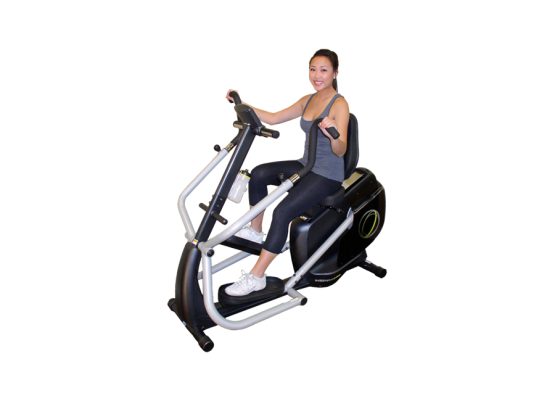Acute Effects of High-Intensity Interval Exercise on Mood and Enjoyment Outcomes in Multiple Sclerosis
Wednesday, May 30, 2018: 1:55 PM
104 A-C (Nashville Music City Center)
Elizabeth Hubbard, PhD , Department of Kinesiology, Berry College, Mount Berry, GA
Robert W Motl, PhD , Department of Physical Therapy, University of Alabama at Birmingham, Birmingham, AL
Background: Multiple sclerosis (MS) is a disease of the central nervous system that results in walking dysfunction and physiological deconditioning. High-intensity interval exercise (HIIE) has induced significant improvements in physiological conditioning in healthy and clinical populations, including MS. Before integrating HIIE into an exercise prescription, and in order to increase the likelihood that participants engage in and adhere to this exercise regime, it is important to identify if persons with MS who have mobility disability enjoy the HIIE and experience mood benefits.
Objectives: To examine the effects of single sessions of HIIE and continuous exercise (CON) using recumbent stepping on mood and enjoyment outcomes in persons with MS who have mobility disability.
Methods: 20 participants with MS who have walking impairments (Expanded Disability Status Scale median (IQR) of 5.8 (0.8)) underwent counterbalanced presentations of HIIE and CON exercise bouts. The HIIE bout was 20 minutes in length and included 10 cycles of 1-min intervals at a wattage (W) associated with 90% VO2peak followed by 1-min recovery intervals at 15W. The CON bout comprised of 20 minutes at a wattage associated with 50-60% VO2peak. The Profile of Mood States (POMS) survey was administered pre-, immediately post-, and 30-minutes post-exercise. The Physical Activity Enjoyment Scale (PACES) questionnaire was measured immediately post-exercise.
Results: We observed no significant condition × time interactions or main effects of condition on any POMS subscales (p>.05). The data indicated large statistically significant main effects of time (p<.05) on Total Mood Disturbance, Fatigue, and Vigor, wherein mood worsened immediately post-exercise, but rebounded after the 30-minute recovery period. There was no significant difference in scores for the PACES questionnaire between HIIE (M = 95.5, SD = 14.9) and CPAG (M = 97.7, SD = 16.3) conditions.
Conclusions: We determined that HIIE exercise is equally enjoyable to traditional CON exercise and does not induce sustained, deleterious effects on mood in persons with MS with walking impairments. This has important implications for informing an evidence-based exercise prescription in persons with MS who have walking impairments that is appropriate for improving physiological conditioning.

Wednesday, May 30, 2018: 1:55 PM
104 A-C (Nashville Music City Center)
Elizabeth Hubbard, PhD , Department of Kinesiology, Berry College, Mount Berry, GA
Robert W Motl, PhD , Department of Physical Therapy, University of Alabama at Birmingham, Birmingham, AL
Background: Multiple sclerosis (MS) is a disease of the central nervous system that results in walking dysfunction and physiological deconditioning. High-intensity interval exercise (HIIE) has induced significant improvements in physiological conditioning in healthy and clinical populations, including MS. Before integrating HIIE into an exercise prescription, and in order to increase the likelihood that participants engage in and adhere to this exercise regime, it is important to identify if persons with MS who have mobility disability enjoy the HIIE and experience mood benefits.
Objectives: To examine the effects of single sessions of HIIE and continuous exercise (CON) using recumbent stepping on mood and enjoyment outcomes in persons with MS who have mobility disability.
Methods: 20 participants with MS who have walking impairments (Expanded Disability Status Scale median (IQR) of 5.8 (0.8)) underwent counterbalanced presentations of HIIE and CON exercise bouts. The HIIE bout was 20 minutes in length and included 10 cycles of 1-min intervals at a wattage (W) associated with 90% VO2peak followed by 1-min recovery intervals at 15W. The CON bout comprised of 20 minutes at a wattage associated with 50-60% VO2peak. The Profile of Mood States (POMS) survey was administered pre-, immediately post-, and 30-minutes post-exercise. The Physical Activity Enjoyment Scale (PACES) questionnaire was measured immediately post-exercise.
Results: We observed no significant condition × time interactions or main effects of condition on any POMS subscales (p>.05). The data indicated large statistically significant main effects of time (p<.05) on Total Mood Disturbance, Fatigue, and Vigor, wherein mood worsened immediately post-exercise, but rebounded after the 30-minute recovery period. There was no significant difference in scores for the PACES questionnaire between HIIE (M = 95.5, SD = 14.9) and CPAG (M = 97.7, SD = 16.3) conditions.
Conclusions: We determined that HIIE exercise is equally enjoyable to traditional CON exercise and does not induce sustained, deleterious effects on mood in persons with MS with walking impairments. This has important implications for informing an evidence-based exercise prescription in persons with MS who have walking impairments that is appropriate for improving physiological conditioning.
